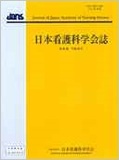Japanese
English
- 販売していません
- Abstract 文献概要
- 参考文献 Reference
要旨
目的:老年期うつ病者のレジリエンスについて,当事者が経験した病いと回復のストーリーの中から解釈することである.
方法:うつ病と診断され,精神科治療を受けている高齢者5名を対象に,参加観察および非構造的面接を行い,Riessmanのナラティヴ研究法に基づいて分析した.
結果:研究参加者の病いと回復のストーリーを解釈した結果,老年期うつ病者のレジリエンスとして「人生で獲得してきた能力や日常性がよみがえることで生まれる力」「家族からの何気ない気遣いの中で家族との絆を感じる力」「慣れ親しんだ地域との一体感を再確認する力」「罪悪感と折り合い自らの人生を肯定的に統合する力」「孤独の価値を見出す力」「いのちのつながりの中で次世代のいのちを慈しみ希望をたくす力」の6つのテーマが導き出された.
結論:本研究で導き出された6つのレジリエンスには,いずれも長年のその人の人生や生活世界が密接に関連していることが考えられた.看護師は老いや死に対する価値観や人間観をもつ中で,老年期うつ病者とともに在ることや対話することを通して,そこに存在するその人の人生に裏打ちされた力に着目することが重要であろう.
Objectives: To interpret elements of resilience in patients with senile depression were interpreted from stories of their illness and recovery.
Methods: Participant observation and unstructured interviews were conducted among 5 elderly patients who were receiving psychiatric treatment after being diagnosed with depression. The data were analyzed using Riessman's narrative analysis.
Results: Six themes of resilience in patients with senile depression were interpreted from subjects' stories of illness and recovery: “strength that emerged from re-recognition of abilities acquired throughout their lives, and from everyday lives”; “strength to perceive bonds with family members from day-to-day kindnesses and consideration”; “strength to re-recognize a sense of belonging to a familiar community”; “strength to accommodate feelings of guilt, thereby creating an integrated view about their own lives”; “strength to find value in loneliness”; “strength to love and entrust one's hopes to the next generation through the connections of life”.
Conclusions: The six themes of resilience found in this study seemed to be closely associated with the lives and the worlds inhabited by elderly patients over a long period of time. It is important that nurses have their own views about aging, death, and human beings, and that they stay beside elderly patients and talk with them, thereby noticing the patients' strength that has emerged from the experience that the patients gained throughout their lives.
Copyright © 2016, Japan Academy of Nursing Science. All rights reserved.


